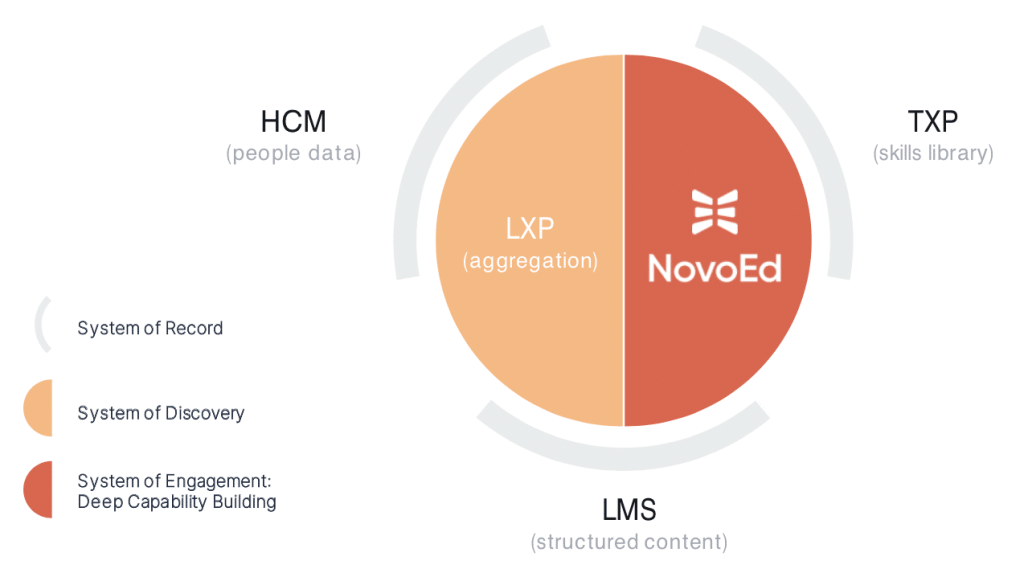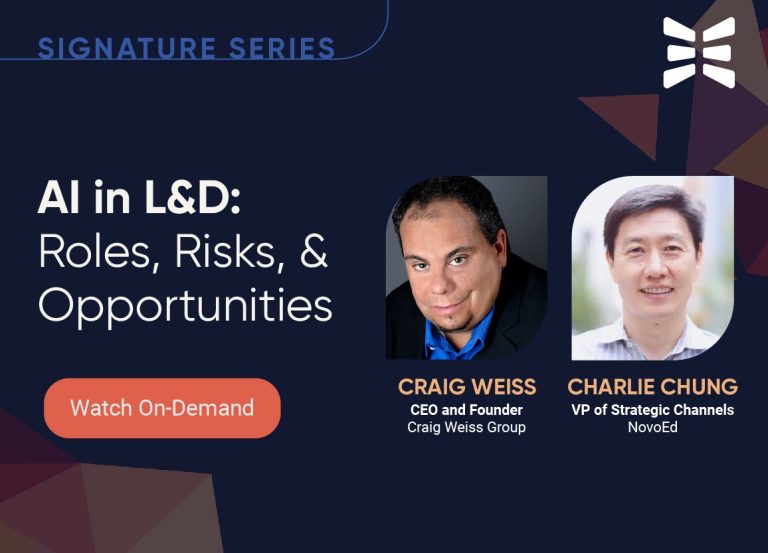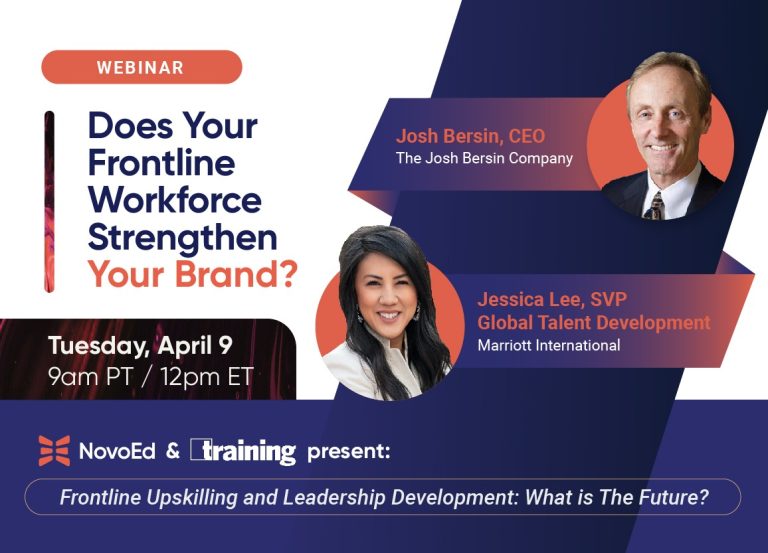Learning Experience Platforms: What Is an LXP?
Learning management systems (LMSs) laid the foundation for the introduction and integration of powerful corporate learning programs, allowing organizations to administer, document, deliver, and track educational courses, training programs, and learning and development initiatives. These learning management systems long served L&D professionals as their go-to resource for instituting effective online learning programs.
In the past decade, however, learning experience platforms (LXPs) have gained ground in the competitive learning landscape. LXPs have been touted as the next generation of learning management systems, evolving what had primarily been a tool for top-down, management-driven learning, in which the organization determines and dictates the goals of the L&D program. These platforms aimed to replace them with a bottom-up, learner-led experience that draws from an array of content sources. The definition of an LXP has shifted across the years, with characteristics hard to define and differentiate.
Which has left many L&D professionals wondering: What is a learning experience platform? How does it differ from a learning management system? Can the two work together in harmony? We dive into these answers with examples of both LMS and LXP learning, and how a third option blending and evolving the best of both is the clear winner for fostering your organization’s learning culture and furthering its business outcomes.
LMS vs. LXP
Industry analyst Josh Bersin coined the term learning experience platform and estimated the market opportunity at $350 million back in 2018. Since then, he has projected a 50 percent annual growth rate. By comparison, the global learning management system industry was projected at $16 billion in 2022 and is expected to grow to $41 billion in 2029.
Organizations can use a learning experience platform to keep users engaged throughout the development journey by giving individuals more control and flexibility over the learning environment. Users can tailor the workflow to suit their needs while staying connected to their peers and educators.
Both learning management systems and learning experience platforms strive to improve learning by making it faster, more streamlined, more accessible, more trackable, and more scalable. However, the more mature LMS market features several hundreds of products, while the emerging LXP industry offers far fewer options, muddling the decision-making process for many L&D departments.
Whereas learning management systems primarily serve as an online repository of course content, learning experience platforms present personalized learning programs via interactive access to content from a variety of sources and recommendations based on the learner’s individual interests, skill gaps, and goals.
For an employee interfacing with a learning management system, the experience may feel static and staid. This is by design; with a defined curriculum, the learning programs and processes are centralized, consistent, and conceived to meet industry and organizational compliance. By contrast, a learning experience platform offers a user experience reminiscent of social networking and consumer-grade multimedia sites; think of the search-and-sort capabilities of Netflix or Spotify, but for learning content. This can leave a learner feeling disconnected from the larger learning community and left on their own.
Perhaps the simplest way to understand the differentiation between an LMS and LXP: Learning management systems are a comprehensive process that equips organizations and L&D departments to deliver complete learning programs. Learning experience platforms act as a personal learning portal and recommendation engine.
Which Learning Tool Is Right for Your Organization?
The most dynamic and personalized learning paths give both learners and administrators greater control over L&D activities as individual and organizational needs evolve. A more intuitive and agile approach allows for greater flexibility, discovery-based learning, and learning in the context of work through individual and team projects that can include video practice, role play, presentations, and more functionalities, enhancing employee compliance and engagement.
One of the key qualities of a successful learning platform is its focus on supporting peer-to-peer learning. It should also be able to connect users with subject matter experts and encourage knowledge sharing. An ideal learning solution should also have advanced insights and reporting capability. This can help you easily track user behavior, skill gaps, and engagement. In turn, this can help close the gap between online learning and on-the-job performance.
What’s Next After LXPs?
Advances in technology helped all stakeholders in the learning industry realize that there are better and more effective ways to help learners unlock their potential and achieve their learning objectives.
Both learning management systems and learning experience platforms have their limitations. While LMSs often lack customizable functionalities and compelling learner-led capabilities, and LXPs stop short of providing a full synergistic practice, a better solution can be found in social and collaborative learning.

A collaborative, cohort-based learning platform bridges the gap between the LMS and the LXP by engaging learners, promoting accountability, and strengthening and sustaining learning across an organization via practice and application, discussion and feedback, team-based projects, and coaching and mentorship.
These vital features empower learners to engage with peers, mentors, and subject experts and connect learning to the context of their role and their organization within a cohesive, streamlined experience that feels both intentional and worthwhile. It is through these types of rich, lived-in learning experiences that mindsets and behaviors change and organizational wisdom is gained.


